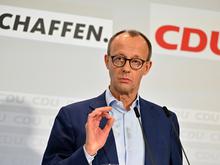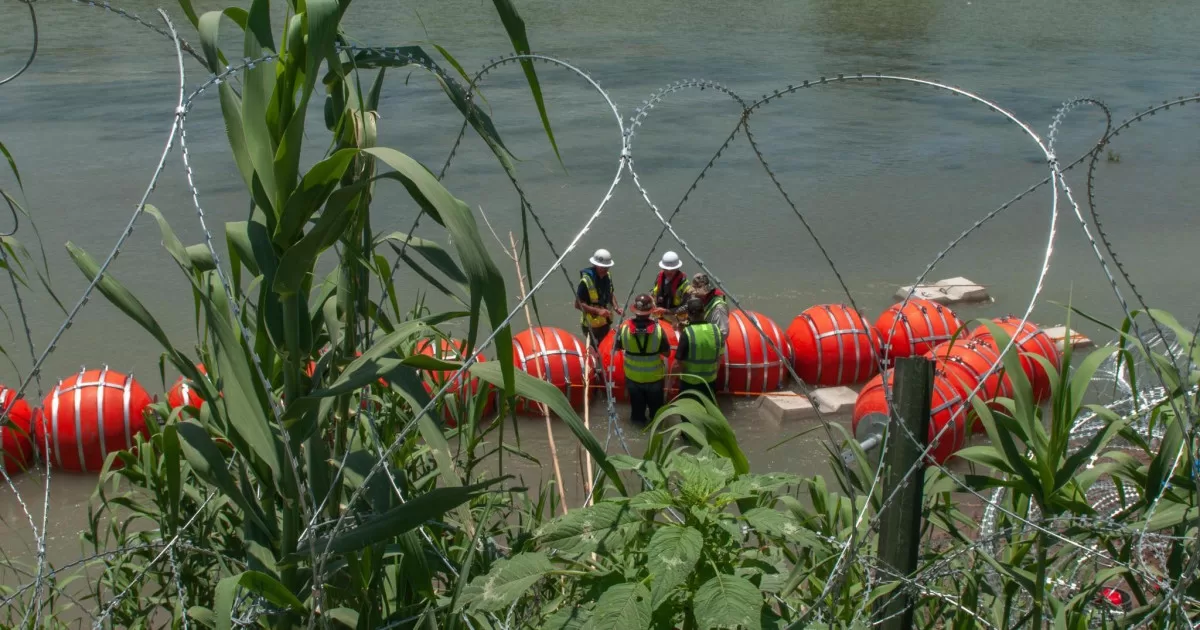Friedrich Merz followed his “Pascha” statement to Weimar. Actually, the CDU wanted to risk the big impact on the economy, energy and climate this weekend in the Thuringian city of culture.
When presenting the new policy paper, however, it is again about the fact that the CDU leader this week referred to young people of Arab origin as “little pashas”. “Are you going to change anything about your course?” asks a journalist. Mertz shakes his head.
Officially, the CDU leader has no regrets. But the fact that his statements are a problem for the CDU will become apparent this weekend in Weimar. The party wants to distinguish itself on the important future issues of this time and present its own concepts. “Understanding economic policy, energy policy and climate policy as a unit” is the title of the ten-page paper that the CDU leadership finally approved in Weimar.
In the days before, the CDU was in the headlines, especially in connection with Merz’s appearance at Markus Lanz.
Many in the party agree with the CDU leader on this matter. “Merz is right,” says CDU program director Carsten Linnemann on the record when he arrives at the conference hotel in Weimar on Friday evening. In the party, they also talk about the many positive letters that have come from the population: integration problems have to be addressed.
sensitivity to language
But behind closed doors it is quite clear that not everyone is happy with Merz’s generalizing choice of words. As participants report, Secretary General Mario Czaja makes it clear at the beginning of the retreat that the CDU must appeal to a broader range of people – including people with a migration background. Ex-Health Minister Hermann Gröhe and Bundestag member Serap Güler warn of language sensitivity.
However, Güler is particularly upset about the Berlin CDU, which asked for the first names of the German perpetrators on New Year’s Eve in a small inquiry in the House of Representatives. Many in the CDU think that the Berlin CDU has scored an own goal – mainly because it damaged its ability to form a coalition shortly before the election.
For the CDU, the issue of migration has been sensitive since the refugee crisis. In recent years, many Union politicians have decided not to address it offensively. On the one hand, for fear that the AfD could use it if the topic is the focus. On the other hand, out of the fear of being placed in the right-wing corner because of tough migration policy demands.
Climate triad
At the retreat in Weimar, however, the party leadership first wanted to clear up other construction sites: In recent years, they have lost their attribution of competence in economic policy. In any case, it is not perceived as a party for climate protection. Now her goal is a holistic concept. “We had gaps in content,” admits Secretary General Czaja.
But there were also initial irritations in this area. A sentence appeared in a draft of the “Weimar Declaration” according to which the CDU advocated examining the construction of new nuclear power plants. But that was not coordinated in the party headquarters. He was deleted.
The Turkish baker on Sonnenallee in Berlin is just as affected by these riots as anyone else.
Friedrich Merz
Now it says: “We support the continuation of research and development of next-generation nuclear energy.” In addition, the CDU is calling for the purchase of new fuel rods so that the existing nuclear power plants can continue to operate until at least the end of 2024.
When it comes to climate, the CDU wants a triad: on the one hand, significantly more CO2 must be saved. The CDU insists not only on avoiding the greenhouse gas CO2, but also on storing gas produced during industrial production and using it as a raw material. “We want a real CO2 circular economy,” says the policy paper. Vice-Chancellor Robert Habeck (Greens) had recently shown himself open to the use of “Carbon Capture and Storage” technology.
Avoiding CO2, storing CO2 – and adapting to the consequences of climate change: That is the line that the Christian Democrats now want to follow. At the same time, Germany should remain an industrial country, Merz emphasized when presenting the paper.
In the end, Merz then spoke again about integration policy. Criticism of his line? Didn’t he notice. But there is a desire in the CDU not to treat those people with a migration background who have lived here for decades the same way as those who don’t want to behave. “The Turkish baker on Sonnenallee in Berlin is just as affected by these riots as anyone else,” says Merz. It sounds forgiving.
To home page



